Satiating the demands of the global sugar industry is big business for Cambodia’s sugarcane plantations. Yet accusations of human rights abuses and land grabs in the Kingdom have left a bitter aftertaste for many on the ground as companies vie for a larger slice of the pie.
Images of bulldozed homes, shot animals and razed crops are not what European consumers expect to be confronted with when biting into a sugary treat. However, activists calling for an international boycott of US-owned Tate & Lyle Sugars, which is based in London, say this is what has happened in Cambodia in recent years as well-connected companies continue to flout the law in the pursuit of profit.
When Cambodia achieved Everything But Arms (EBA) status in the early 2000s, businesses jumped at the chance to benefit from the preferential trade scheme, which allows goods produced in Cambodia to be exported to the European Union without import duties or quotas. The scheme sweetened the deal for local and regional sugar barons, guaranteeing a minimum price per tonne, so that local farmers in the developing nation would not lose out due to global price fluctuations.
The intention behind the scheme was good; the result for Cambodia’s farmers in Koh Kong, Kampong Speu and Oddar Meanchey provinces was disastrous.
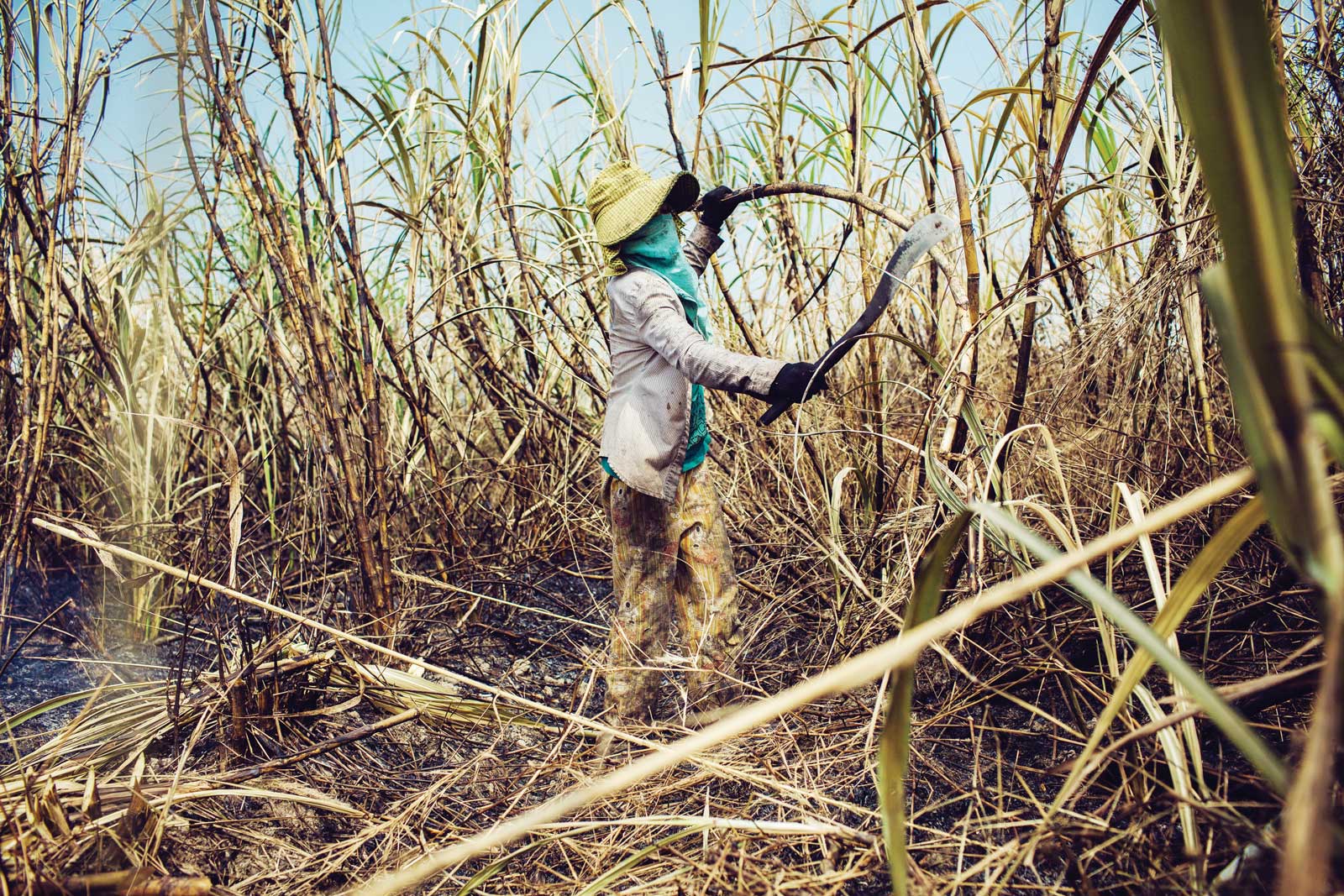
In the rush to expand Cambodia’s sugarcane plantations, land was illegally – and often violently – confiscated from hundreds of Cambodians, some of whom could do nothing but watch as their homes burned to the ground. Families that once enjoyed a regular income from farming diverse crops and raising cattle found themselves homeless and jobless.
Villagers in Kampong Speu protested against a 2010 mass eviction following the allocation of 9,313 hectares of land to the Phnom Penh Sugar Company – owned by the ruling Cambodian People’s Party (CPP) senator Ly Yong Phat – as an economic land concession (ELC). The demonstrators’ cries fell on deaf ears, and 16 were arrested following the torching of company offices.
Responding to allegations that Phnom Penh Sugar forcibly evicted people from the land, Seng Nhak, Ly Yong Phat’s son-in-law and director of Phnom Penh Sugar, said its plantation in Kampong Speu has been the victim of a “misunderstanding” and that the company leases the land from the government.
Cambodia’s ELC scheme allows the government to lease large plots of land to companies that agree to farm them. In recent years, more than two million hectares of land have been transferred mostly from subsistence farmers to agribusiness. While the farmers are entitled to compensation, the sum offered usually grossly underestimates the value of their land.
A 63-year-old resident of Omlaing commune, who wished to remain anonymous, said that he has land titles for seven hectares of land he owns in Kampong Speu’s Thpong district, yet in 2010 he was summoned to court for illegal possession and has since had to attend court eight times.
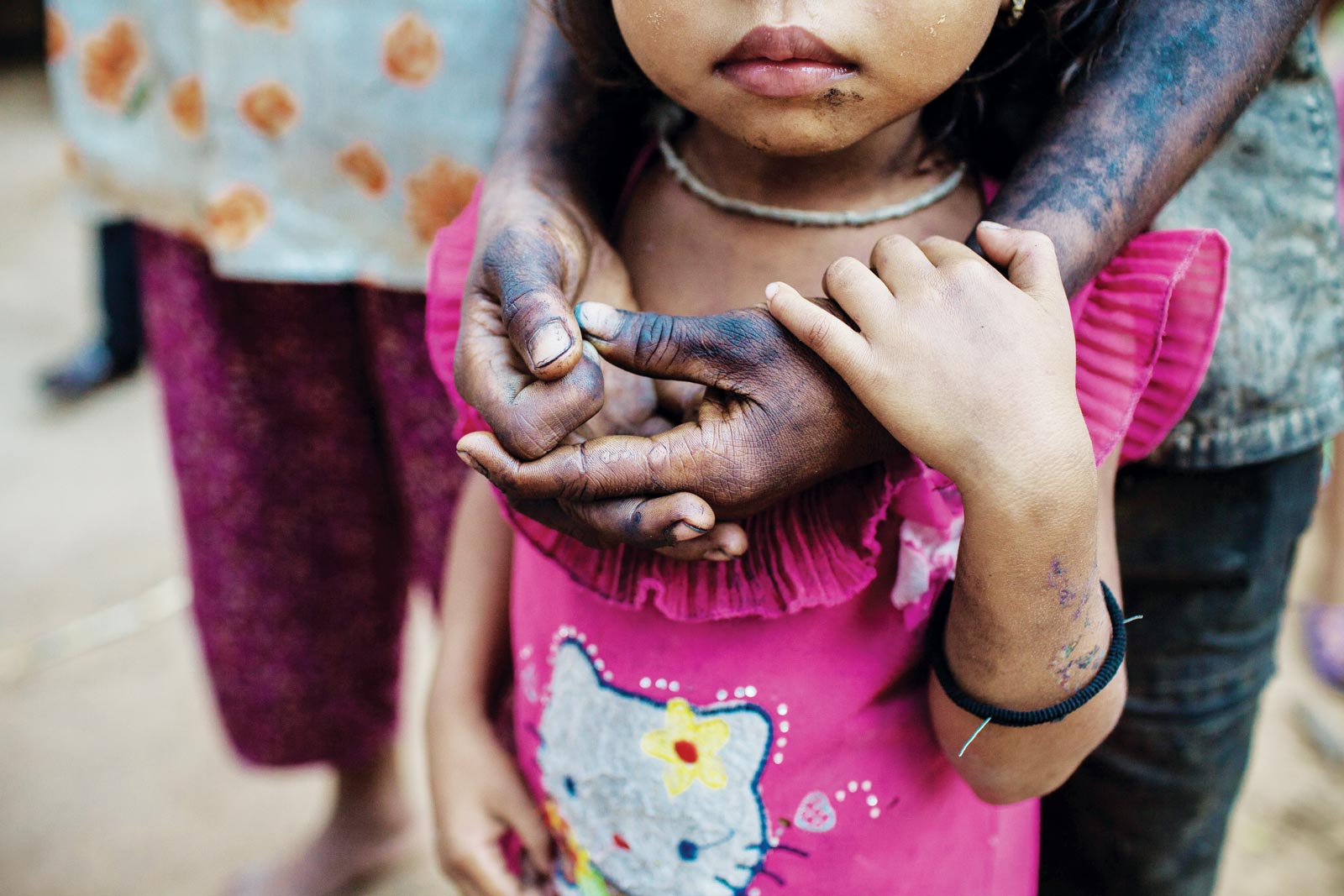
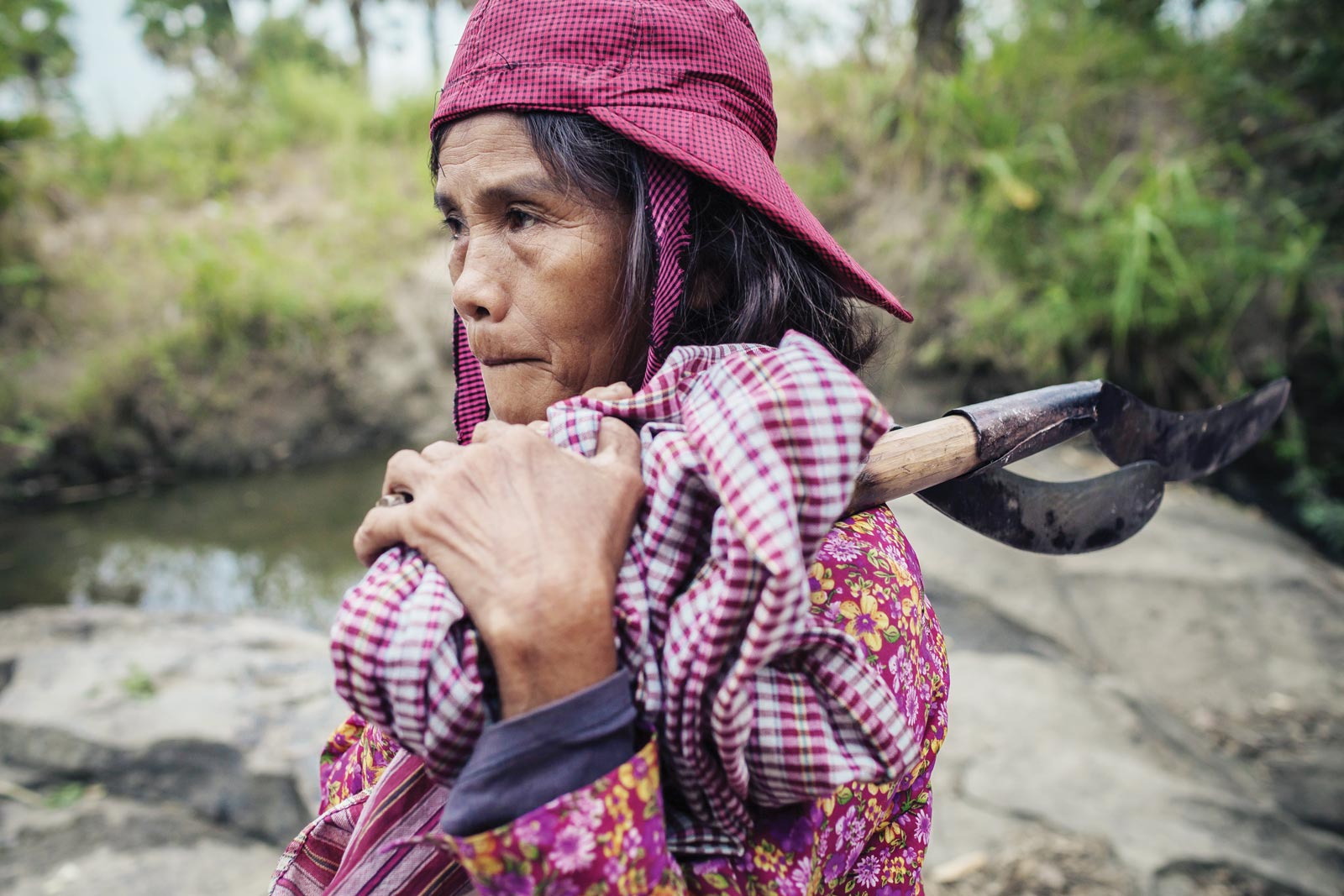
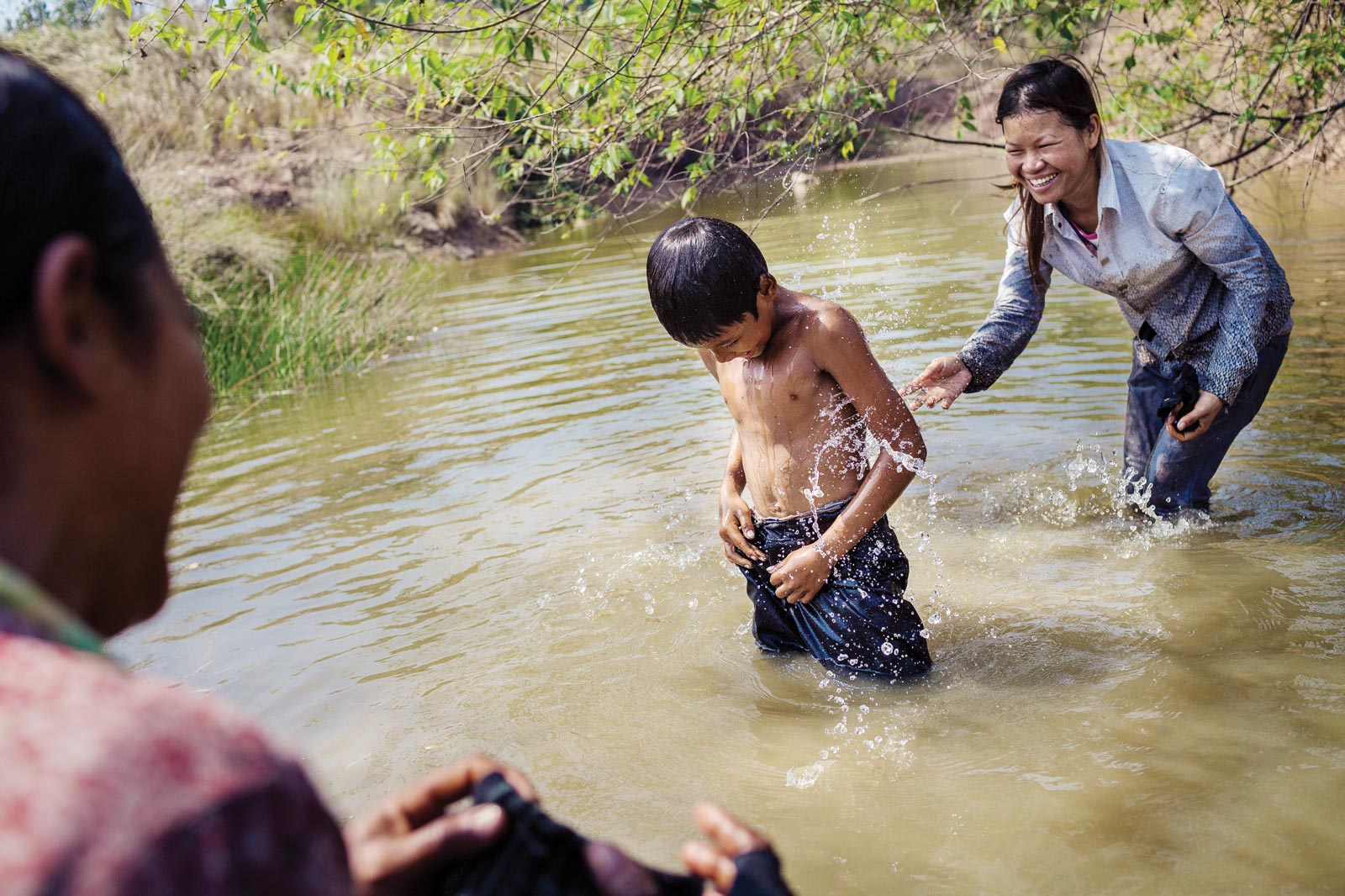
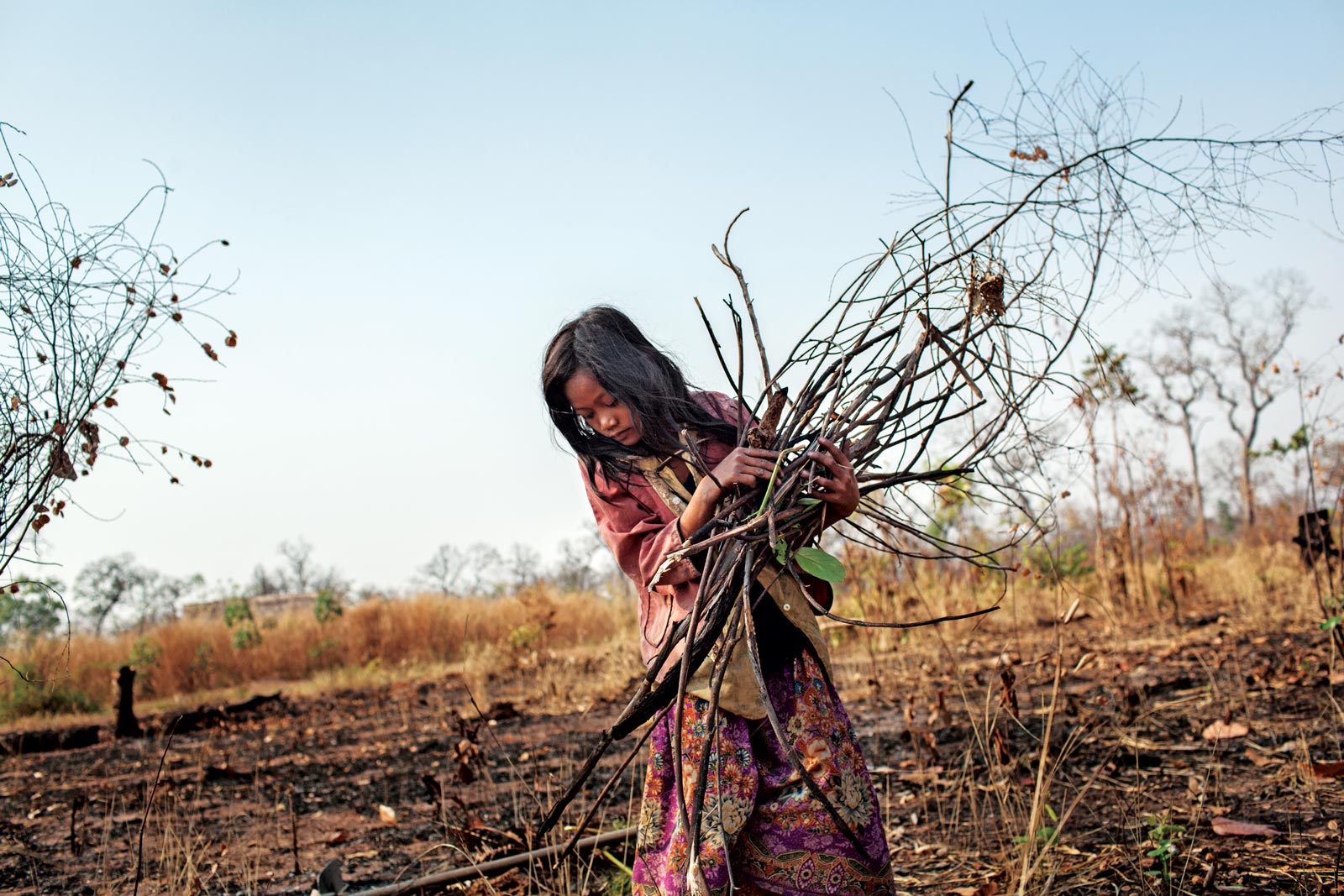
“The company took [most of] my land anyway and built a road in the middle,” he said, adding that rubbish and black water that oozes from the plantation workers’ camp drains into his remaining two hectares of land.
The Omlaing resident says he was compensated $80 for each of the five hectares of land Phnom Penh Sugar took from him, which is a fraction of its real value. However, this farmer is one of the luckier ones in his commune, where only four of the 17 families who have had land taken illegally have received compensation to date.
In the rush to expand Cambodia’s sugarcane plantations, land was illegally and often violently confiscated from hundreds of Cambodians, some of whom could do nothing but watch their homes burn
“In Kampong Speu, villagers very often have all the documents to prove that they are legally entitled to their land, based on possession rights,” says Dr Pung Chhiv Kek, president of Phnom Penh-based NGO Licadho. “But the law is not fairly implemented and most of the people are still evicted without fair compensation.”
Left with no income, villagers say they have little choice but to work for the plantations that took everything from them. In a single day, plantation workers cut up to 1,500 canes but earn less than $5. Earlier in the year, national and international media reported that children as young as seven were working on Phnom Penh Sugar’s Omlaing plantation.
“We have issued regulations to forbid any use of under-age workers in our fields,” said Seng Nhak, adding that contractors would be fined $12.50 for a first-time offence and have their contracts terminated if it happens again.
“While child labour is authorised under certain conditions in Cambodia, if systems are not in place to monitor and respond to national child labour law abuses, then it can be futile to impose fines,” said Simrin Singh, senior specialist on child labour for the International Labour Organisation (ILO).
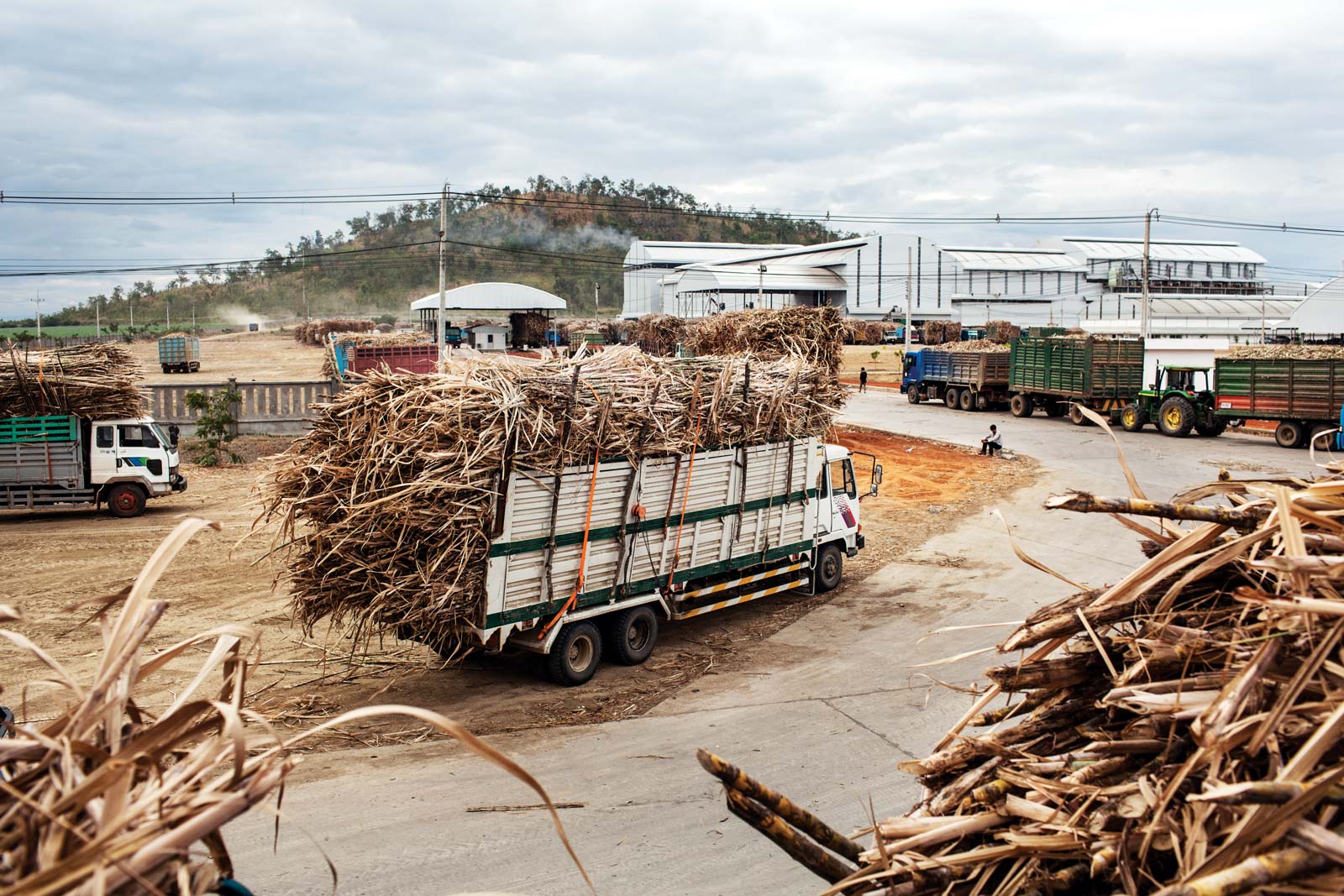
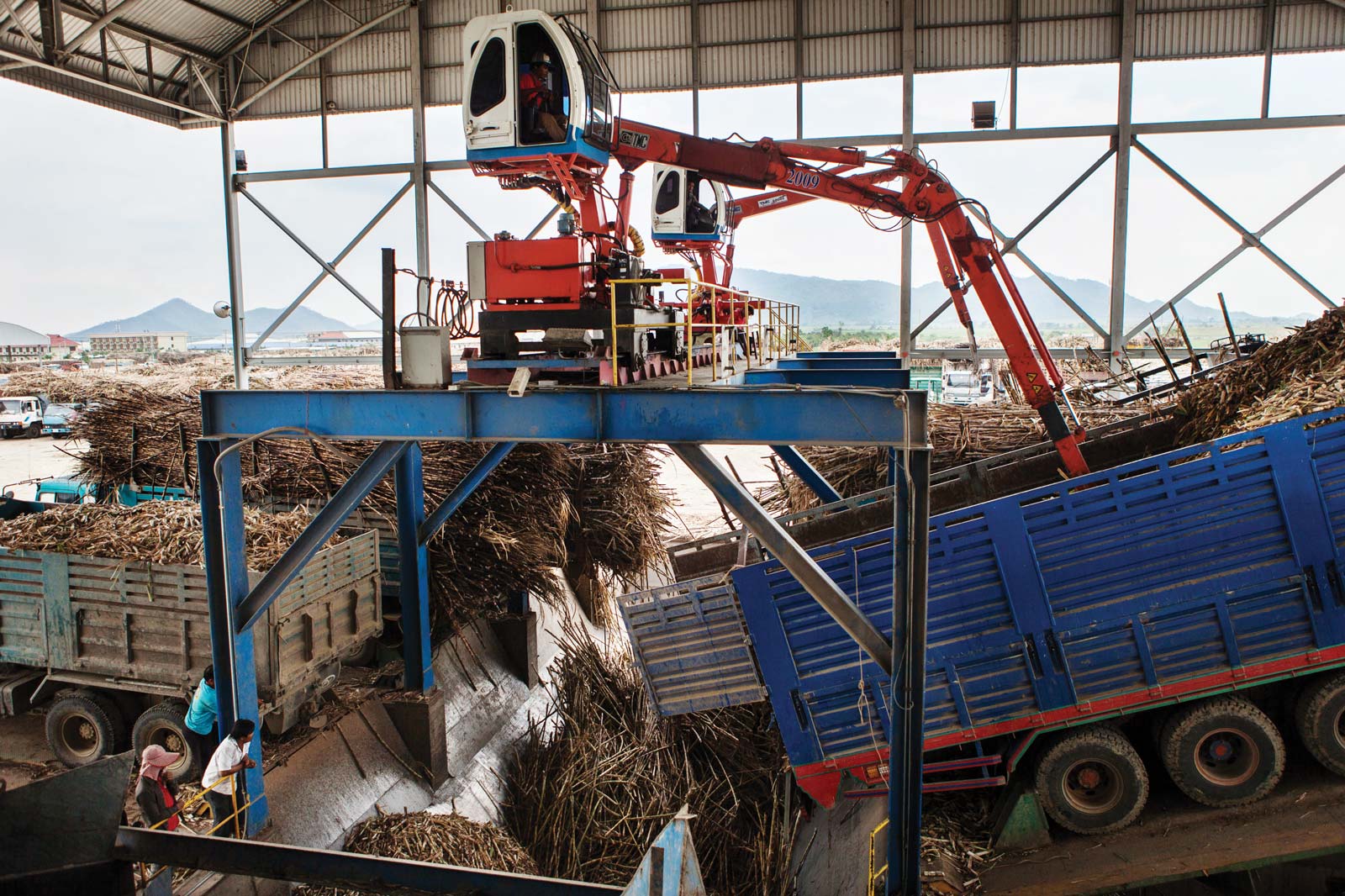
Unfortunately for the farmers of Cambodia, the Kampong Speu land grab is not an isolated incident. In 2006, the illegal confiscation of 1,364 hectares of land from 200 farmers in Koh Kong province to make way for a major international sugar plantation linked to leading American, British, Taiwanese and Thai corporations garnered global attention. During the eviction, two villagers received non-fatal gunshot wounds, and others were beaten with rifle butts as they tried to protect their homes. Company staff also confiscated villagers’ livestock and demanded payment for their return. In some cases livestock have been shot if they stray within the boundaries of the concession.
At that time, Thai-owned Khon Kaen Sugar Industry Public Company Limited (KSL) circumvented Cambodia’s land law – which states that ELCs in excess of 10,000 hectares cannot be granted – by registering Koh Kong Sugar Industry (KKS) and Koh Kong Sugar Plantation (KKP) as two separate companies despite the fact that they operate as a single business interest. As a result, KSL managed to scoop a whopping 19,100 hectares in Sre Ambel district – nearly two times the legal limit – causing widespread displacement and impacting the livelihoods of hundreds of Cambodians. In some instances, children are forced into the fields to help support their families.
“I don’t go to school because we don’t have any money,” said an 11-year-old worker from Koh Kong, who wished only to be named as B.S. “So I go and harvest sugar cane to get money to pay for school. The work is very hard, it’s hot and I am always tired. I have no strength when I arrive home.”
Taiwanese Ve Wong Corporation holds 30% of the two subsidiary companies, while Cambodian senator Ly Yong Phat held shares in both companies before selling them in 2010.
The sugar produced from the two plantations is sold to Tate & Lyle Sugars, which was acquired by American Sugar Refinery Company in 2010. Since signing a deal with KSL in 2009, Tate & Lyle Sugars has imported 48 million kilograms of sugar, worth more than $32 million, according to The Cambodia Daily.
The 200 farmers are now suing Tate & Lyle Sugars: British law firm Jones Day filed a case on their behalf with the UK’s High Court of Justice in late March. The lawsuit estimates the value of the annual sugar cane crop grown on the farmers’ land at $2.3m, with the farmers hoping the lawsuit will pressure KSL to return their land.
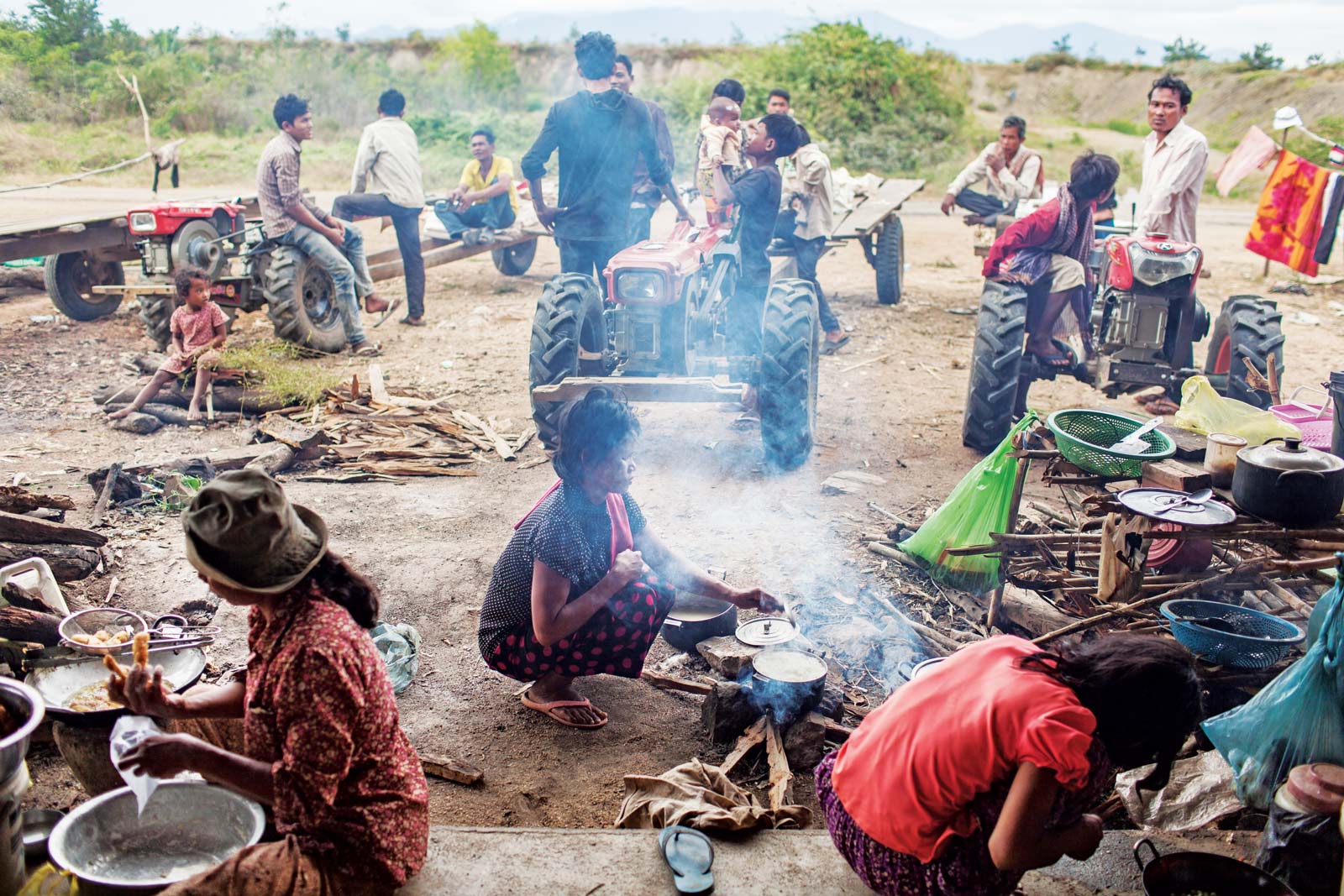
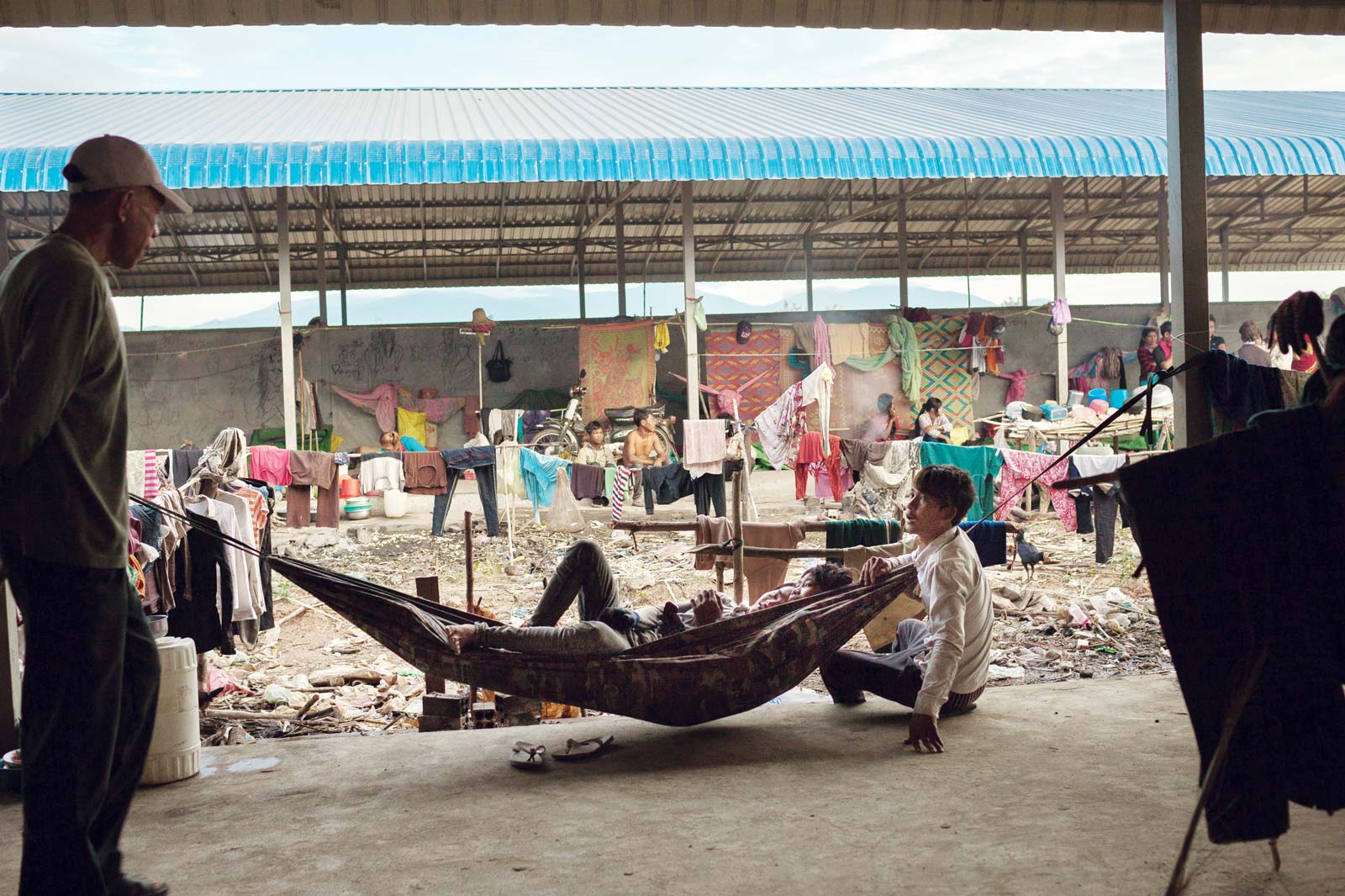
Life at Phnom Penh Sugar’s Omlaing manual labourer camp, which has no sanitary provisions or electricity. Photo: Nicolas Axelrod
“[In this case] there are obvious violations of the principles of residence on this land,” said Mark Moorstein, a lawyer with the Virginia-based Rees Broome, PC Law Firm, who helped promote the case and worked alongside Jones Day. “In Cambodia, companies can claim to have legal possession of it. However, the requirements towards communities were never met.”
“[A company] should know the law of the country it is coming to work in,” said Dr Pung Chhiv Kek. “The Cambodian authority should also force the company to respect the law as they are signing a mutual contract.”
Many of the families locked in the long-running dispute with KSL have staged protests, including establishing makeshift roadblocks on national highways, to demand the return of their land. Meanwhile the Clean Sugar Campaign, a coalition of affected communities and NGOs seeking to end human rights abuses caused by the Cambodian sugar industry, has launched a global campaign to, among other things, boycott Tate & Lyle Sugars.
“We are raising awareness [in Europe] where many of the famous brand soft drink and chocolate products may contain sugar that is tainted with the blood and the tears of Cambodian farmers,” said David Pred, an advisor to Cambodian national NGO Equitable Cambodia, which supports the initiative.
The lawsuit is the latest in a string of events that have increased pressure on KSL and Tate & Lyle Sugars. Following an investigation into allegations of human rights abuses, the National Human Rights Commission of Thailand (NHRC) released a statement last year citing evidence that KSL had violated the human rights of communities affected by its ELCs.
We are raising awareness [in Europe], where many of the famous brand soft drink and chocolate products may contain sugar that is tainted with the blood and the tears of Cambodian farmers
David Pred, Equitable Cambodia
“These families are [facing] starvation and suffering as they cannot access any plot of arable land. People were not consulted,” said Dr Nirun Pitakwatchara, NHRC’s commissioner.
In November, a complaint was filed to the US National Contact Point, a government office that handles disputes relating to the Organisation for Economic Cooperation and Development (OECD) Guidelines for Multinational Enterprises.
“Tate & Lyle Sugars believes that KSL has demonstrated genuine attempts to resolve its disputes with local people, providing compensation to all but nine families who remain in negotiation with KSL and the Cambodian government,” a company representative wrote in an email.
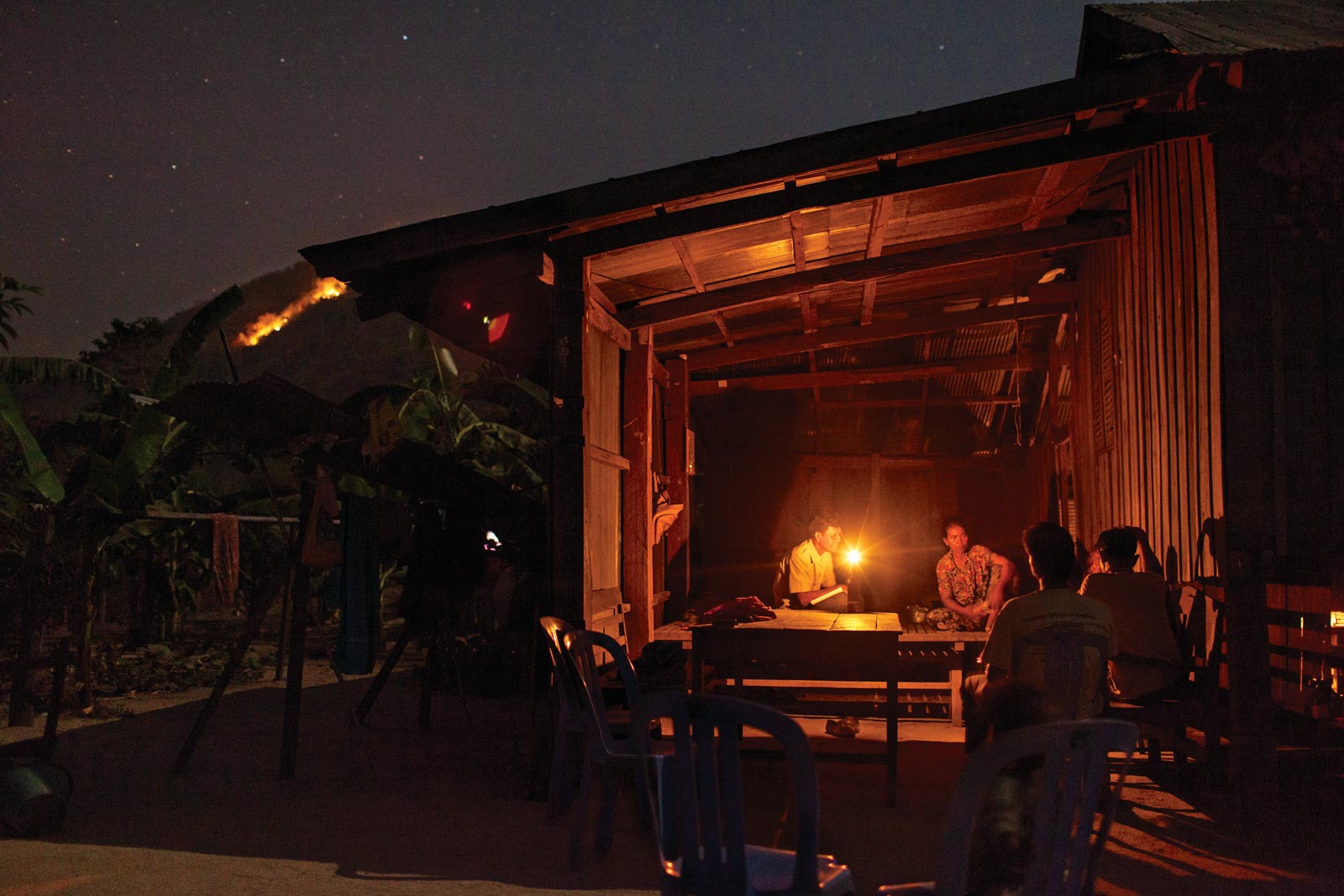
However, a KSL fact-finding mission in March acknowledged the ongoing conflict. “There are 200 families still in dispute and asking for their land back,” Khamrom Phochai, a KSL representative, told local media. Khamrom’s visit was the company’s first meeting with the Cambodian farmers since the dispute began in 2006. “I will make a formal report to send to my boss in Thailand, since the company wants to end the dispute with the local villagers as soon as possible,” he added.
Tate & Lyle Sugars had not responded to follow-up emails about KSL’s statement at the time of going to print.
The high-profile case has also been taken to the Cambodian courts and the United Nations Office of the High Commissioner for Human Rights, and has led the EU to review its EBA trade agreement with Cambodia.
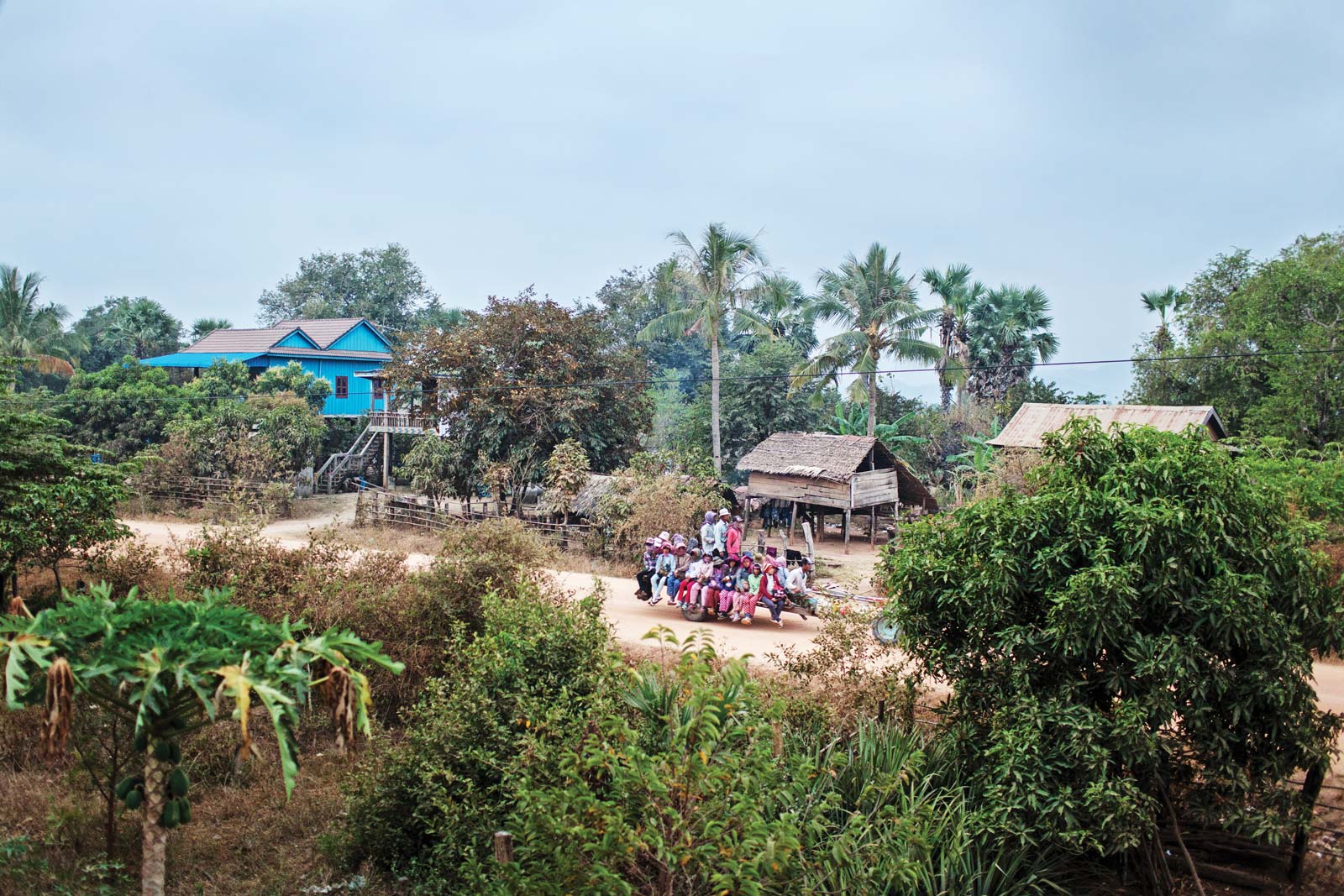
“[The EBA] is a good thing because it does bring development,” added lawyer Mark Moorstein. “But it also encouraged exploitation and formation of these companies.”
Jean-Francois Cautain, ambassador for the EU in Cambodia, said that he did not think it was possible to amend the EBA, Cambodia would not benefit from its withdrawal or suspension and that the country would still have EBA status in 2014. “EBA has been brought into the matter because, in some cases, people have been evicted to make space for agribusiness whose products are exports to Cambodia’s major export destinations, [such as] the EU,” he added. “Saying the situation of these families is EBA-related is by far overstretched.”
Last year, the European Parliament adopted a resolution calling on the European Commission to investigate “the escalation of human rights abuses in Cambodia”. In the meantime, with little other recourse, the destitute families of Cambodia’s sugar fields will continue to line the pockets of others.

